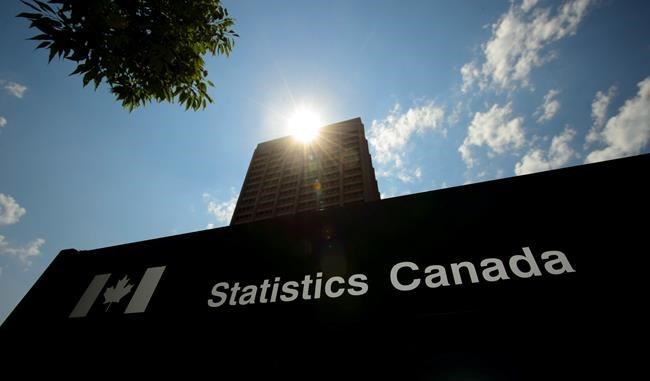
<p>Statistics Canada building and signs are pictured in Ottawa on Wednesday, July 3, 2019. THE CANADIAN PRESS/Sean Kilpatrick</p>
Republished February 21, 2025 - 2:22 PM
Original Publication Date February 21, 2025 - 9:46 AM
OTTAWA - Indigenous people who were in government care as children experience poorer health and socioeconomic outcomes later in life than those who were never in care, a new Statistics Canada report says.
They suffer higher rates of disability, lower self-rated health levels and more homelessness and are more likely to struggle to meet basic household needs, the report says.
Statistics Canada's report, released Tuesday, says that despite the closure of residential schools and the end of the Sixties Scoop — the large-scale removal of Indigenous children from their homes for adoption — family separation continues to be "disproportionately high in Indigenous communities."
"Data doesn't lie. It tells a story," said Chief Pauline Frost, who has been urging Canada to renegotiate First Nations child welfare reforms on a national level after previous attempts failed last year.
"We cannot continue down this path of destruction. We have to look at finding solutions."
According to the 2018 data cited by Statistics Canada, 11 per cent of Indigenous people aged 15 and older reported being under government care as children, while just two per cent of non-Indigenous respondents said the same.
The agency says 16 per cent of First Nations children, nine per cent of Inuit and six per cent of Métis reported being under government care.
"These separations and losses are associated not only with adverse health outcomes but also with diminished educational and socioeconomic prospects," the Statistics Canada report says. "Indigenous children in the child welfare system have notably lower high school graduation rates compared to both non-Indigenous children and Indigenous children not involved in the system."
Two-thirds of Indigenous people under government care as children reported having a disability, compared to 46 per cent who were not in care.
Sixty per cent of those in care as kids reported difficulties in meeting household needs, compared to just 38 per cent of those who were not in care. Twenty-six per cent of Indigenous people in care as children reported experiencing homelessness, compared to seven per cent of those who were not in care.
"While this paper does not establish a causal relationship between (family separation during childhood and poorer outcomes among Indigenous adults), it demonstrates an association between childhood experience of being under government care and the ongoing challenges that Indigenous adults face today, including mental health issues, disability, homelessness and economic instability," the report says.
Attempts have been made to reform the child welfare system, including one launched after a landmark Canadian Human Rights Tribunal (CHRT) ruling that said Canada discriminated against First Nations kids by underfunding on-reserve services.
The CHRT directed the federal government to work with First Nations to reform that system, but progress hit a wall after chiefs voted down a $47.8 billion proposal to transfer control of the system to First Nations.
Despite calls from chiefs for Ottawa to return to the negotiation table, Frost said Canada is being an unwilling partner since it informed the Assembly of First Nations it would only renegotiate with Ontario.
In an effort to push Canada back to the table, Frost wrote a letter to Prime Minister Justin Trudeau, Indigenous Services Minister Patty Hajdu and a handful of opposition leaders and MPs asking for a binding letter of commitment stating some elements of that deal are still available.
NDP MP Lori Idlout said a lack of response from the federal government to Frost's January letter indicates "First Nations children don't matter to them as they say it does."
"They prefer to keep discriminating against First Nations children rather than working towards reconciliation and ensuring First Nations get the help they deserve," she said Friday.
Indigenous Services Canada did not immediately respond to a request for comment.
This report by The Canadian Press was first published Feb. 21, 2025.
News from © The Canadian Press, 2025